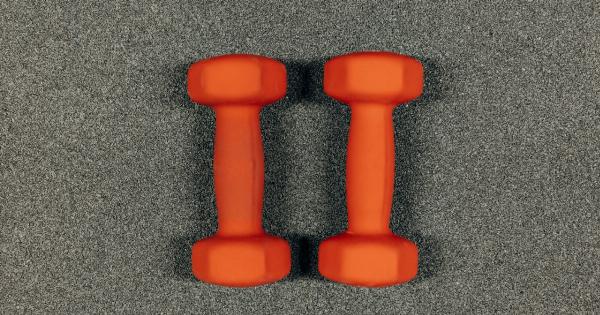Excessive weight can put a strain on your pelvic muscles, weakening them and leading to bladder control problems. Incontinence can be embarrassing and limit your daily activities.
Fortunately, shedding extra pounds through diet and exercise can significantly improve bladder control. In this comprehensive guide, we will explore some useful tips for weight loss to improve your bladder control.
Understanding Bladder Problems
Before we dive into weight loss for bladder control, it is essential to understand how bladder problems happen. Bladder control issues mainly occur due to a weakened pelvic floor muscle that supports the bladder and rectum.
This muscle weakness can be a result of various factors like childbirth, menopause, and obesity. Being overweight puts extra pressure on the bladder and urethra, leading to bladder leakage.
The Link between Weight Gain and Bladder Control Problems
Carrying extra weight can lead to bladder control problems as it can weaken your pelvic muscles. When you are overweight, your pelvic muscles are under constant pressure, which can lead to fatigue and weakening.
Being overweight also leads to the deposition of fat around the bladder causing constant pressure on it, making it challenging to hold urine. Moreover, excess sugar and salt in an overweight diet can cause dehydration and bladder irritation.
Tips for Losing Weight to Improve Bladder Control
1. Focus on a Balanced Diet:
Eating a balanced diet can help you lose weight and reduce bladder control problems. Ensure you eat a variety of nutrient-rich foods, including fresh fruits, vegetables, lean proteins, and whole grains.
The nutrients in these foods help support a healthy pelvic floor and reduce inflammation in the bladder. Avoid processed and sugary foods as they can cause dehydration and bladder irritation.
2. Watch Your Calorie Intake:
Reducing your calorie intake can help you lose weight and reduce bladder control problems. Balance your meals to get the recommended amount of calories for your age, weight, and gender.
You can achieve this by using smaller plates, eating slowly, and avoiding snacking between meals. Aim to reduce your caloric intake by 500 calories daily to lose one pound a week.
3. Exercise:
Exercise can help you lose weight and reduce bladder control problems by strengthening your pelvic muscles. Kegel exercises are particularly helpful as they help tone your pelvic floor muscles.
You can also try yoga, which focuses on breathing and movements that help strengthen your pelvic muscles. Cardiovascular exercises like jogging, cycling, and swimming can also help you lose weight and improve bladder control.
4. Hydrate:
Drinking plenty of water can help reduce bladder control problems by flushing out toxins and preventing dehydration. Drinking enough water can also help reduce bladder irritation, which can lead to incontinence.
Aim to drink at least six to eight glasses of water daily and avoid sugary and caffeinated drinks that can irritate the bladder.
5. Seek Professional Help:
If you have severe bladder control problems, seeking professional help can help you formulate a suitable weight loss plan.
A urologist or a physical therapist can help you develop a tailored plan to help you lose weight and strengthen your pelvic muscles. They may also recommend other therapies like medication, surgery, and electrical stimulation to help improve bladder control.
The Bottom Line
Excessive weight can make bladder control problems worse. However, through a balanced diet, exercise, and hydration, you can lose weight and strengthen your pelvic muscles.
These simple tips can significantly improve your bladder control and help you lead a fulfilling life.



























